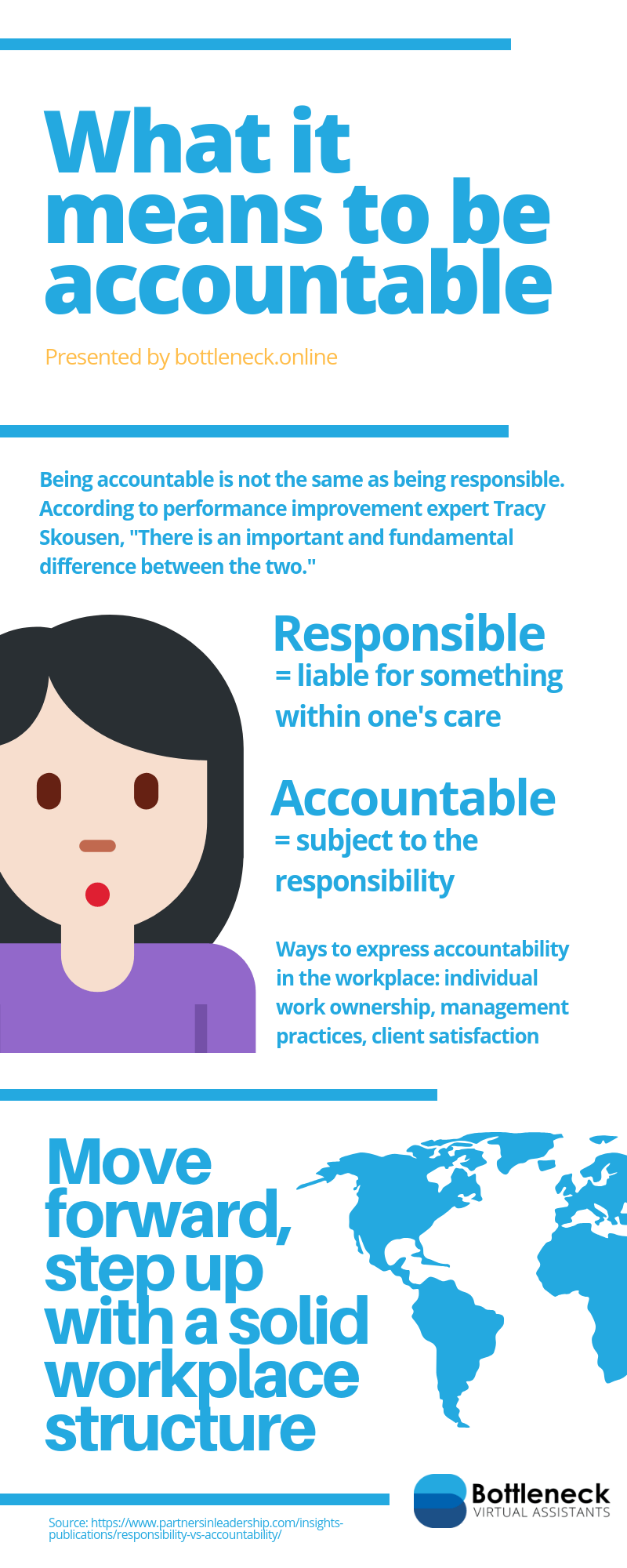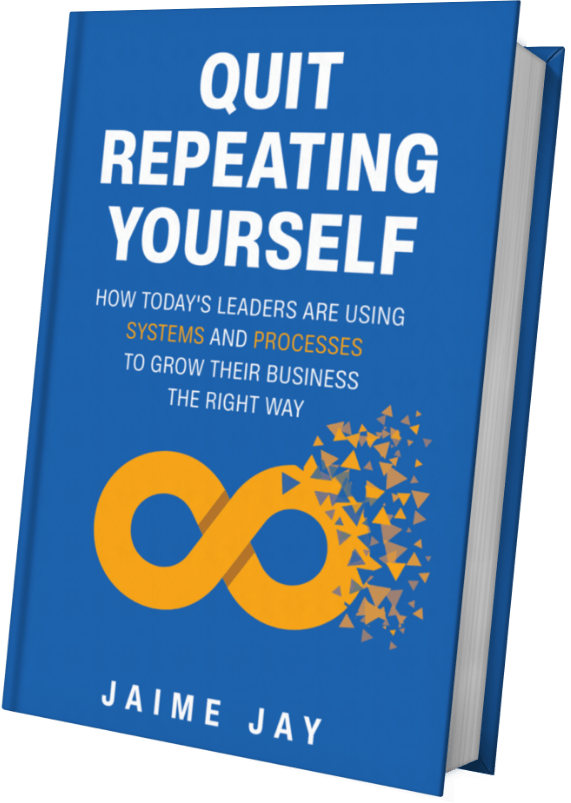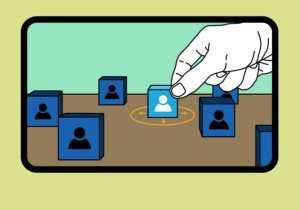Remote Workplace Accountability

The Internet is giving small businesses the space to connect with qualified individuals who may assist them in their growth. They are able to come together regardless of their culture and location. However, one question stands in the open: How can remote workplace accountability be expressed when working with someone halfway around the world?
What a Remote Workplace is Like
Team members have many opportunities to physically interact with one another in a traditional office setting. They work in the same office location, can conduct on-the-spot performance observations, and could go as far as smelling the cup of coffee that a co-worker is having.
Remote teams, on the contrary, may have members working from different parts of the world. For example, the CEO may be located in the United States, the Executive Secretary in the Philippines, and the Project Manager in Australia. And all the files, folders, login credentials, and other pertinent information are either shared or stored in the cloud.
It is as what many would refer to as a company that is built online with all or a number of its employees pursuing the laptop lifestyle. Both business owners and remote workers can be working from anywhere and anytime in the world, as long as they have Internet access.
Related: Hear from Our Distant Assistants
What It Means to Be Accountable
Accountability is often defined as the condition of being liable or answerable for any course of action taken. It expresses a willingness to act according to one’s responsibilities.
Customer service representatives, for example, have the responsibility to answer product and service inquiries. It is part of the job role they were hired for.
But being accountable is not the same as being responsible.
Performance improvement expert Tracy Skousen of Partners in Leadership said, “While the words responsibility and accountability are often used interchangeably, we believe there is an important and fundamental difference between the two.”

He further explains that to be responsible means to be liable for something within one’s care. On the other hand, to be accountable means to subject oneself to that responsibility.
Therefore, accountability is not consequential. It empowers workers to go the extra mile and be more personally engaged in the team instead. It encourages one to take ownership of his responsibilities as an individual contributor and to be completely involved in the process of working together as a team.
Ways to Express Accountability
Accountability is a good indicator of established systems in a workplace. It can be expressed mainly in three ways, which are as follows: individual work ownership, management practices, and client satisfaction.
1. Individual Work Ownership
Every worker has a unique role to fill. Whatever their responsibilities, they exist to help usher the company toward success. They can own their work instead of first seeking validation from others.
According to Skousen, “Accountability is a broader concept than responsibility—it’s something you do to yourself, not something that someone does to you.
“It’s with this version of accountability that people not only take accountability for the results they need to achieve individually but for results that they are not 100% in control of.
“Organizations embracing positive accountability have a culture of people that hold themselves accountable for the ultimate results of the organization.”
2. Management Practices
Solo entrepreneurs comprise a number of those hiring remote workers. The challenge is that they may not have a solid workplace system in place yet before they decide to hire.
They hire mostly based on the urgency to fill in a given position. When their company starts to scale with a larger team, they struggle with delegating tasks. The more projects they collaborate on, the more assignments occupy everybody’s workload. One thing that can be done is to keep lines of communication open.
Strive to maintain remote workplace accountability regardless of how big your business becomes. Discover the benefits of developing and abiding with the best HR management practices.
3. Client Satisfaction
Taking accountability improves the way workers work. It also empowers them to produce premium results that will satisfy the needs of your clientele.
As business consultant David Kruzner said, value is the key currency in a vendor relationship. The rise of job creation has set aside cheap labor for quality.
He said, “Outsourcers have become more stringent in the quality of output being delivered rather than in the price it took for them to avail it.”
Before hiring, be clear with your objectives. Maintain an efficient workplace structure that your remote workers can follow, and identify what success means to your business.
Kruzner adds, “If success is tied to solid, measurable business outcomes, then the vendor and client can march toward the same goal as true partners, with shared risk and investment.”
The Cost of Misapplication
Whenever a new project arrives, workers tend to refer to their entrusted roles for questions like, “Who should be in charge?” A so-called “accountability crisis” in organizations was revealed in a multi-year study that involved more than 40,000 participants.
An astounding 80% of the respondents indicated feedback as something only experienced when things do not go well. And 85% were not certain of their organization’s main objectives.
What organizations have to pay for:
- Misalignment of job roles and priorities
- Declining workplace engagement
- Ineffective execution of initiatives
- Low levels of trust among colleagues
- A poor attitude in the workplace
- High turnovers due to unclear expectations
- High turnovers due to poor management practices
When accountability is misconceived in a remote workplace, it can prevent workers from active participation and can lead to a lash of name blaming in the end.
It saps away engagement from a supposedly collaborative environment and disconnects members from one another, leading to confusion in responsibilities and, worse, to increased turnovers.
Move Forward, Step Up
Accountability is a choice to be taken by both the business owner and the remote worker. None is exempted from the possible pitfalls of its misapplication.
When your business starts to scale with a bigger remote team, secure a solid workplace structure and keep your team culture alive.
Maintain open communication and establish standards of measurement for your output. Best of all, equip yourself for the inevitable because bad things can also happen to good people.
Share the love and tell your friends about Remote Workplace Accountability. Feel free to share your thoughts with others in the comments below!
About Jaime Jay
Meet Jaime Jay – a man who wears many hats, and wears them all admirably. He's a master connector, an entrepreneur extraordinaire, and a published author who knows how to get things done.
Before he found his way to the business world, Jaime served his country as a brave paratrooper in the U.S. Army. But that's just the beginning of his many accomplishments.
He's the founder of the renowned Bottleneck Distant Assistant Services firm, and his book "Quit Repeating Yourself" has become a must-read for entrepreneurs everywhere.
When he's not busy building his empire, you can find him on his beloved Harley Davidson, cruising through the countryside and taking in the invigorating effects of Uitwaaien – a Dutch practice that involves facing the wind to boost health and relieve stress.
He enjoys spending his free time outside building stuff with his wife, Nikita the dog and their two kittens (for now at least) Tommy and Tater.
He is ‘over-the-moon’ happily married to his wonderful wife Sara, his amazing daughter, Jessica, who is serving our country as a United States Army soldier. Jaime and Sara are the proud grand parents of two beautiful little girls.

Get Your Book Now!
Quit Repeating Yourself provides guidance for entrepreneurs, business leaders, and managers to help prevent unknown challenges from ruining their business.



















